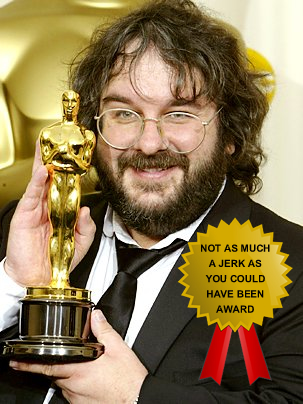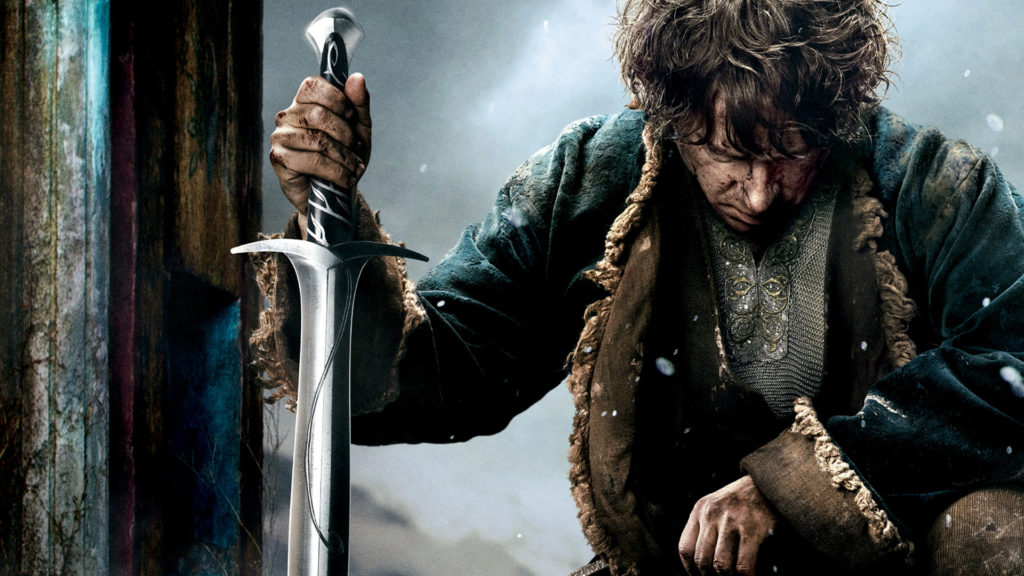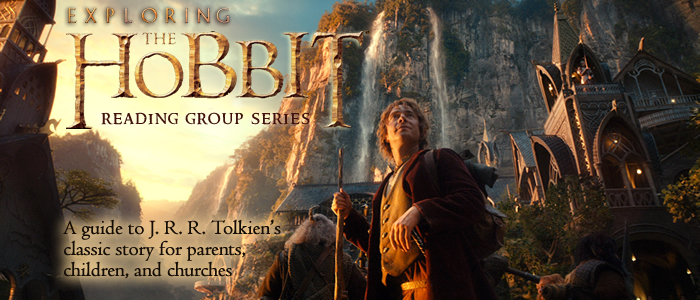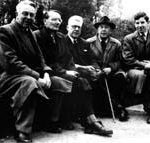Exploring ‘The Hobbit’ Chapter 19: The Last Stage
Skeptics of the recently concluded The Hobbit film series, please, don’t be a Scrooge.1
Go see the final film(s) you’ve missed, including The Hobbit: The Battle of the Five Armies that released in U.S. theaters last week.2 The film trilogy ends on a high note (though not too high, lest The Lord of the Rings ending seem redundant) and a beautiful, subtle return to the start of The Fellowship of the Ring film that is not at all like the heavy-handed end of another infamous prequel film trilogy (George Lucas’s Star Wars prequels, cough cough).
Moreover, the film preserves with excellent flourish the most central and powerful themes of Tolkien’s subversive “simple children’s story” — themes such as a homebody Hobbit finding his inner courage, a would-be king’s idolatry that nearly destroys him, and politics and greed between people groups that must be put aside to fight the true enemy.
 Mind you, the film has its flaws, not as many as some fans or cynical critics would count but enough to make The Hobbit book readers wince. As I note at Christ and Pop Culture:
Mind you, the film has its flaws, not as many as some fans or cynical critics would count but enough to make The Hobbit book readers wince. As I note at Christ and Pop Culture:
Surely many filmmakers do prize power, wealth, and adulation, and can abuse these gifts for sinful ends. But if we get stuck on these flaws, we will miss the delights even flawed filmmakers can share with us.
… Yes, many films are made to appeal to different viewers: hardcore fans, casual fans, and folks who “go to the movies” and merely pick a title while standing in line. Thus we get plot holes, dumb romances and action sequences, and just plain poor filmmaking decisions. But if you don’t fight these shortfalls to enjoy the overall story, you’re going to have a bad time.
… A day may come when we craft films that are utterly free of special-effects overindulgence and are fully faithful to the original books. A day may come when New Hollywood filmmakers worship only God and not franchise mammon, and fans don’t care who wins the box office. But it is not this day!
Now here are the final questions of this three-year The Hobbit reading project.3
 Chapter 19: The Last Stage
Chapter 19: The Last Stage
- How does this chapter begin with a slightly different feel than the previous one?
- It appeared that Gandalf had been to a great council of the white wizards, masters of lore and good magic; and that they had at last driven the Necromancer from his dark hold in the south of Mirkwood. (283) Would you have preferred hearing more about that story? Why might Tolkien not explore that story further here? (Bonus question: good magic?)
- [Gandalf:] “… I wish [the Necromancer] were banished from the world!” [… Elrond:] “… I fear that will not come about in this age of the world, or for any after.” For those familiar with The Lord of the Rings, is he right? Why does this story “hide” the Necromancer?
- For several chapters we have heard no songs. Now the songs are back. How come?
- If the main story has truly ended, why this full chapter about Bilbo’s return journey?
- Might there be some meaning to Bilbo retracing his earlier journey, this time without Dwarf companions, disaster, or any other incident? Later, for the first time Bilbo himself sings a song. After this, Gandalf remarks that the hobbit truly seems different — is that possibly because of his song’s theme, or the fact that Bilbo chooses to sing at all?
- Bilbo returns to find friends and relatives raiding the comfortable hobbit-hole he loved so much, and even after he stops that, he is no longer “respectable.” How does he react?
- Balin returns with an update on the Mountain area. How does this help the story end?
- Coming at last to the end, how do you feel about the story’s end? Do you feel that Bilbo, the Dwarves, the Mountain, and Middle-earth are still “out there” somewhere? What may drive this love for fantastic people and places that don’t technically exist? Why may God have given us this response to storytelling — and how does it glorify Him?
- My apologies to readers for missing my cue last Thursday. A Christmas Cold™ set me back. ↩
- If possible, be a “Christmas Hedonist” and pay a little extra to see it in high frame rate and 3D. It takes a moment to “click” mentally, then after about the first 20 minutes you realize you’ve perfectly acclimatized. And yes, I’m sure some viewers cannot deal with it, but the off-putting effects of the technology have been greatly exaggerated — or else falsely rumored due to sporadic incidents of theater staff mishandling the new equipment. ↩
- Dedicated to members of our 2012–13 reading group at Providence Community Church: Amanda, Aubrey, Bethany, Caleb, Carma, Chris, Clay, Doug, Lacy, Lisa, Timothy, and Zac. Because great fantastical stories that glorify God belong not just in homes but in the local church. ↩










































